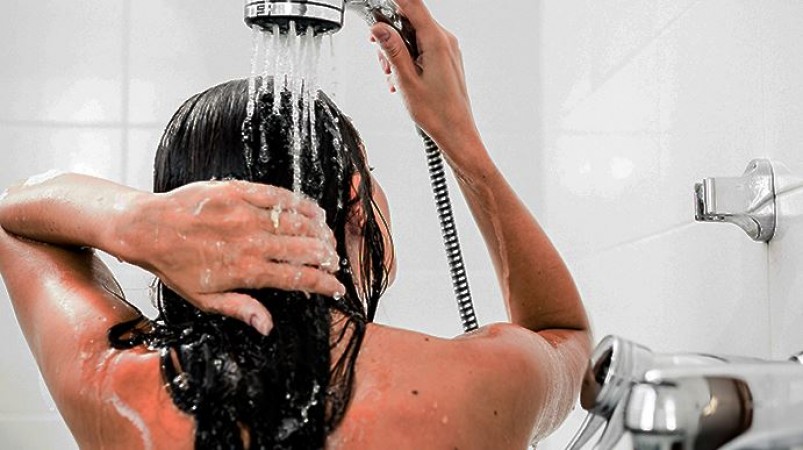
In urban areas, particularly megacities like Delhi and Mumbai, the issue of hard water has become increasingly prevalent. While hard water is safe for consumption after purification, its adverse effects on hair are often overlooked. This article delves into why hard water contributes to hair breakage and provides practical solutions to mitigate its damaging effects.
Why Does Hard Water Cause Hair Breakage?
Hard water contains high concentrations of minerals such as calcium, magnesium, and sodium. These minerals, while not harmful when consumed, can wreak havoc on hair health when used for washing. The minerals in hard water form a residue on the scalp and hair strands, making them dry, brittle, and prone to breakage. This residue also clogs the pores on the scalp, leading to issues like dandruff, itchiness, and scalp irritation.
Impact on Hair and Scalp Health:
Dryness and Brittleness: The minerals in hard water strip away natural oils from the scalp and hair, resulting in dryness and brittleness. This makes the hair more susceptible to breakage and split ends.
Scalp Issues: The residue left by hard water can lead to scalp issues such as dandruff, itching, and irritation. The scalp's natural pH balance is disrupted, causing discomfort and further exacerbating hair fall.
Effective Remedies to Combat Hard Water Effects:
Boiling Water Before Use:
Boiling hard water before using it for hair wash can help reduce its mineral content. This process softens the water, making it less harsh on the hair. After boiling, allow the water to cool to a comfortable temperature before using it for hair wash.
Vinegar Rinse:
An acidic rinse with vinegar can help remove mineral buildup from hair and scalp. Mix one part vinegar with two parts water and use it as a final rinse after shampooing. This rinse helps restore the natural pH balance of the scalp and leaves the hair softer and shinier.
Use of Water Softeners:
Installing a water softener in your home can significantly reduce the hardness of water. These devices work by removing minerals like calcium and magnesium from the water supply, ensuring that the water you use for bathing and washing hair is softer and gentler.
Clarifying Shampoos:
Regular use of clarifying shampoos can help remove buildup from hard water, chlorine, and styling products. These shampoos are formulated to deep-cleanse the hair and scalp, restoring freshness and vitality to your hair.
Deep Conditioning Masks:
Moisturizing and nourishing hair masks can help replenish moisture lost due to hard water. Use a hair mask enriched with natural oils like coconut oil, argan oil, or olive oil once a week to restore hydration and improve hair texture.
Protective Hairstyles:
To minimize exposure to hard water, consider wearing protective hairstyles like braids, buns, or ponytails. These hairstyles help reduce friction and tangling, preserving the health of your hair strands.
In conclusion, the detrimental effects of hard water on hair can be mitigated with proactive measures and proper hair care routine. By understanding the causes of hair breakage due to hard water and implementing the aforementioned remedies, you can maintain healthy, strong hair even in areas with hard water supply. Taking care of your hair is essential for overall well-being and confidence, so invest in methods that protect your hair from environmental factors like hard water.
By following these practical tips, you can effectively combat the impact of hard water on your hair, ensuring that your locks remain vibrant, moisturized, and free from breakage.
Drink These 3 Juices to Help with Erectile Dysfunction
Start Your Day Right: 4 Morning Habits to Do on an Empty Stomach
BFUHS Recruitment 2024: Apply Online for 120 Staff Nurse Vacancies